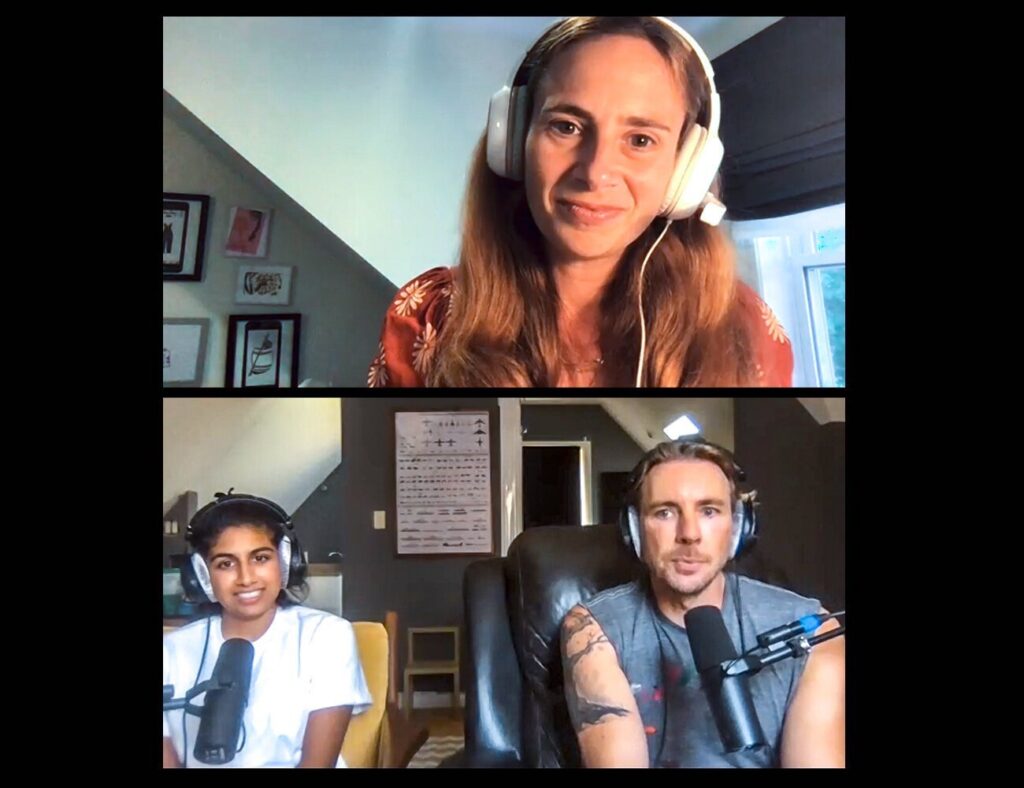Episode 10 Shownotes
Our guest this week is Leah Plunkett, author of the book SHARENTHOOD, and faculty at Harvard Law School and faculty associate at the Berkman Klein Center for Internet & Society at Harvard College.
Leah and I recently reconnected when I had the opportunity to capture some new headshots for her website upgrade. You may have heard of her before – she’s literally an armchair expert and Dr. Phil trusts her as an expert panelist. She’s been featured in the New Yorker, the Economist, Good Morning America, PBS, and more.
Leah was one of my first boss’ in Law School when I externed for the Youth Law Project at NH Legal Assistance. She taught me how to passionately and bravely advocate for the protection of the rights of young people and juveniles who got in trouble with the law.
She’s a self described “Law Nerd” who spends most of her days reading through privacy laws and educating parents about ways we can “advocate” for our kids and guide them in ways to protect themselves in this ever evolving digital world.
Leah wrote Sharenthood to shine light on the mistakes adults make with kids’ private information, the risks of that result and the legal system that enables the collection of your child’s digital footprint from often before they are born!
I’ll admit, initially her book title and description freaked me out. But what I realized, after reading and diving deeper into the topic, is that this is an opportunity to chat about some tangible ways we can be wiser about what we share and how we talk about our kids online. It has also given me the chance to do my own assessment of what I am comfortable with sharing and how I want to talk about my kids “online” moving forward.
Key takeaways:
- Apps collect data about your kids from before conception and beyond (i.e. fertility tracking apps, diaper changing/feeding trackers, smart devices and cameras). Be mindful of the information you share and when in doubt use analog methods for tracking (i.e. paper and pen).
- Your data can be sold to 3rd parties. AI and other imperical data about you and your child may be used by Apps and sold as an asset to third parties.
- Read privacy agreements and ask questions – don’t be shy to research how your information is being used in apps, online and at school.
- Turn off “location services” on apps and do not “add a location” / tag your hometown in social media posts.
- Ask before sharing photos and information about your kids when possible.
- Avoid sharing identifying information about your child in photos or captions online (i.e. full name, date of birth, hometown, time of birth, birth weight, etc.)
- 1st day of school photos – be mindful to not share name of your child’s school/daycare, teacher, and “current favorites” — basically avoid posting photos using the stock blackboards that ask for all that info.
- Use the “Holiday Card Rule of Thumb”– if you wouldn’t feel comfortable sharing the image or information in your post with your boss, neighbor, child’s teacher and/or friends, then consider not sharing the information publicly.
- Don’t share images where your child isn’t fully clothed. Nefarious characters have been known to search for hashtags using the words: bath time, potty training, bikini, bathing suit etc. for uses that are not in your child’s best interest. It is best to avoid sharing these types of images.
- Periodically review and edit your social feeds. Don’t be afraid to delete posts that you no longer wish to share. Check your social feeds every 1-2 years and update as needed.
- We are all “sharents.” It’s not something to feel bad about, but it is something to be mindful of as we make decisions sharing digital information about our kids online.
Resources:
Link to The NY Times Video on Sharenting:
Learn more about Leah Plunkett here.
Read more about sharenting hereListen to Leah’s interview with Dax Shepard and Monica Padman on Armchair Expert — and celebrate a moment where I am 1 degree separated from being their buddy! lol


+ show Comments
- Hide Comments
add a comment